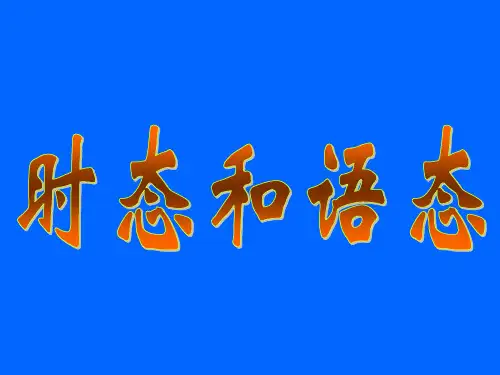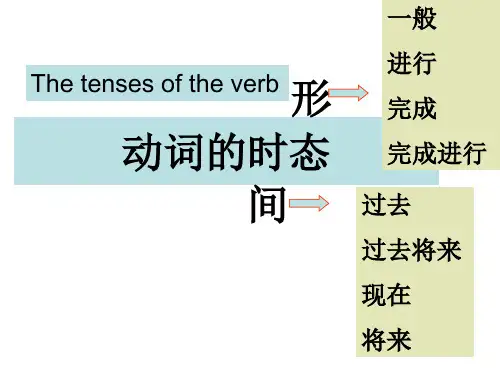不能用 be+v-ing, be+v-ing表示将来,主要强调已经 作出的 安排,e.g. i’m pic you up at 6:00,don’t forget. ) ②强调某个意图是事先考虑好的:
--ann is in hospital.
--yes, i know. i’m going to visit her tomorrow.
--oh,really? i didn’t know. i’ll go and visit her. 2〕表示迹象表明要发生某事,则只能用be going to,e.g.
look at the dark clouds.it’s going to rain. 3〕be going to还有以下用法,e.g. ①强调主观想法或意图: i’m going to wash the car if i have time. (注意:此时
②It was then a small fishing village.
2.特别用法:
1〕表客气或委婉的现在:
①I wondered if you were free this evening.
②I thought you might like some flowers.
(注:过去进行时也可表示现在使语气更委婉、客气,eg.① I was wondering if you could give me a lift. ②We were hoping you would stay with us.能这样用的动 词主要限于want, wonder , think, hope, intend等少数 动词。)
②Someone has broken the window.(结果: 窗户仍破 着)
2〕持续性用法:该用法表示一个过去发生的动作在过去 并未在过去完成,而是持续到现在,且可能继续持续下去 或可能到此结束,e.g.








